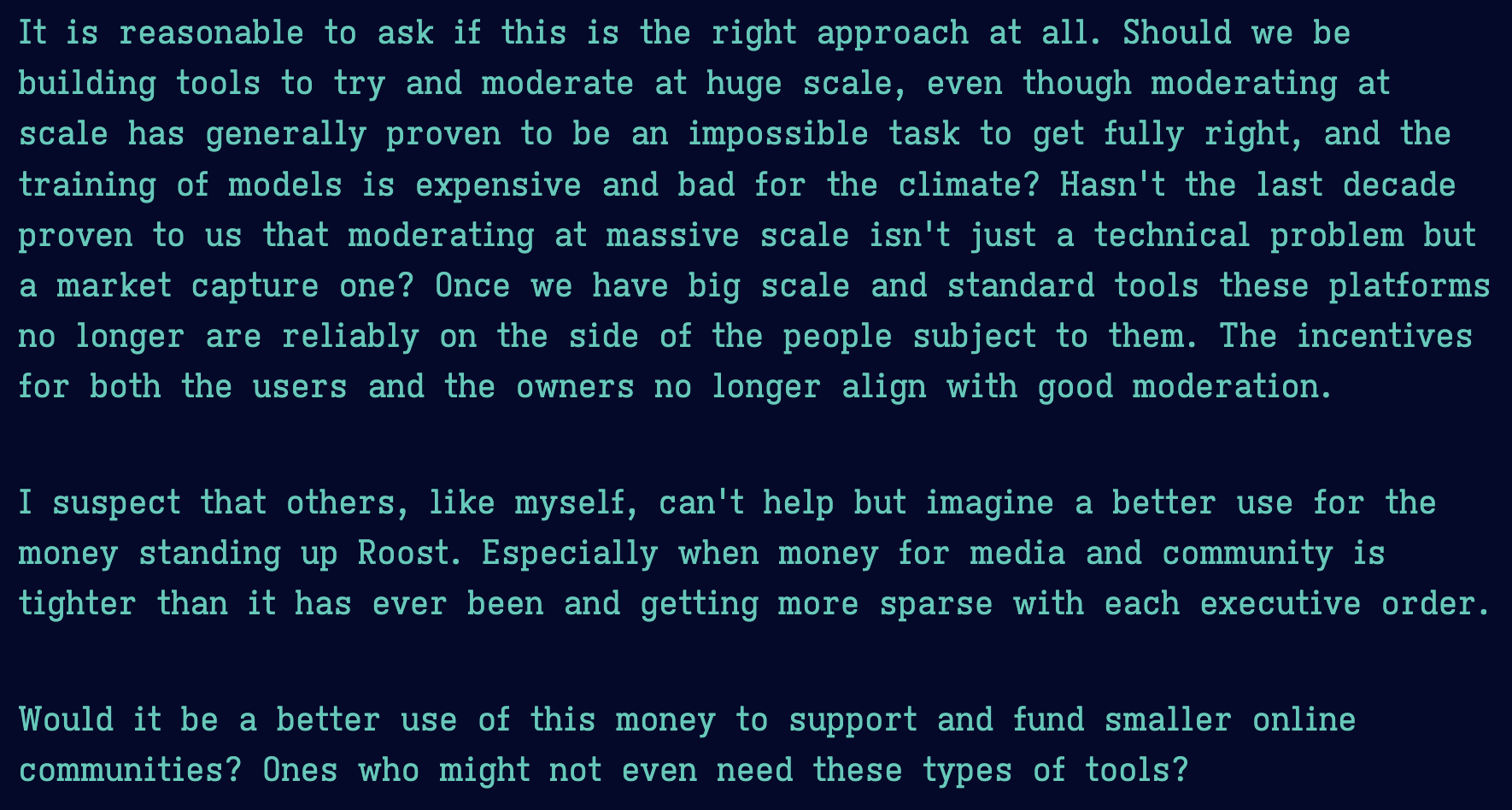@megmac but it mustn't always be.
under this definition, hasn't Congress — the most important branch of the Federal government — been under "competitive authoritarianism" for decades?
see e.g. https://www.opensecrets.org/elections-overview/reelection-rates
from #StevenLevitsky #LucanAhmendWay https://www.foreignaffairs.com/united-states/path-american-authoritarianism-trump
ht @williamcb.bsky.social @casmudde.bsky.social
 Text: But authoritarianism does not require the destruction of the constitutional order. What lies ahead is not fascist or single-party dictatorship but competitive authoritarianism—a system in which parties compete in elections but the incumbent’s abuse of power tilts the playing field against the opposition. Most autocracies that have emerged since the end of the Cold War fall into this category, including Alberto Fujimori’s Peru, Hugo Chávez’s Venezuela, and contemporary El Salvador, Hungary, India, Tunisia, and Turkey. Under competitive authoritarianism, the formal architecture of democracy, including multiparty elections, remains intact. Opposition forces are legal and aboveground, and they contest seriously for power. Elections are often fiercely contested battles in which incumbents have to sweat it out. And once in a while, incumbents lose, as they did in Malaysia in 2018 and in Poland in 2023. But the system is not democratic, because incumbents rig the game by deploying the machinery of government to attack opponents and co-opt critics. Competition is real but unfair.
Text: But authoritarianism does not require the destruction of the constitutional order. What lies ahead is not fascist or single-party dictatorship but competitive authoritarianism—a system in which parties compete in elections but the incumbent’s abuse of power tilts the playing field against the opposition. Most autocracies that have emerged since the end of the Cold War fall into this category, including Alberto Fujimori’s Peru, Hugo Chávez’s Venezuela, and contemporary El Salvador, Hungary, India, Tunisia, and Turkey. Under competitive authoritarianism, the formal architecture of democracy, including multiparty elections, remains intact. Opposition forces are legal and aboveground, and they contest seriously for power. Elections are often fiercely contested battles in which incumbents have to sweat it out. And once in a while, incumbents lose, as they did in Malaysia in 2018 and in Poland in 2023. But the system is not democratic, because incumbents rig the game by deploying the machinery of government to attack opponents and co-opt critics. Competition is real but unfair.
@KimSJ @Chronotope i'm not sure he's disagreeing? isn't he suggesting that maybe a world of small, human-moderated fora would be better than presuming large, algorithmic fora are the norm? (he doesn't address a profit/non-profit distinction, but it seems to me he's challenging the status quo.)
from @Chronotope https://aramzs.xyz/thoughts/roost-must-prove-itself-good-thats-a-reasonable-request/
 Text: It is reasonable to ask if this is the right approach at all. Should we be building tools to try and moderate at huge scale, even though moderating at scale has generally proven to be an impossible task to get fully right, and the training of models is expensive and bad for the climate? Hasn't the last decade proven to us that moderating at massive scale isn't just a technical problem but a market capture one? Once we have big scale and standard tools these platforms no longer are reliably on the side of the people subject to them. The incentives for both the users and the owners no longer align with good moderation. I suspect that others, like myself, can't help but imagine a better use for the money standing up Roost. Especially when money for media and community is tighter than it has ever been and getting more sparse with each executive order. Would it be a better use of this money to support and fund smaller online communities? Ones who might not even need these types of tools?
Text: It is reasonable to ask if this is the right approach at all. Should we be building tools to try and moderate at huge scale, even though moderating at scale has generally proven to be an impossible task to get fully right, and the training of models is expensive and bad for the climate? Hasn't the last decade proven to us that moderating at massive scale isn't just a technical problem but a market capture one? Once we have big scale and standard tools these platforms no longer are reliably on the side of the people subject to them. The incentives for both the users and the owners no longer align with good moderation. I suspect that others, like myself, can't help but imagine a better use for the money standing up Roost. Especially when money for media and community is tighter than it has ever been and getting more sparse with each executive order. Would it be a better use of this money to support and fund smaller online communities? Ones who might not even need these types of tools?
@Phil @realcaseyrollins the great thing about universal benefits is they are denied to no one (who meets very straightforward verifiable criteria, like age and actually attending school, for example). so no politician or bureaucrat gains power from making themselves a gatekeeper for access.
@Phil @realcaseyrollins what's good about the Nordics is everybody has the option to take benefits, you don't have to make being poor your job. most people take benefits that complement work (education, child care) rather than living on the dole as they could, because they want to live rich lives, even though they're not forced to. (they have higher labor force participation than we do!)
@Phil @realcaseyrollins at a sufficient level of generality we might agree on some things! i hesitate to get back into details, though, because i doubt we'd agree for long. and the day is passing with much undone.
@realcaseyrollins that's a very real concern. in general there are conflicts between discretion and fairness. on the one hand, without discretion, you get the kind of stupidly procedural systems people describe pejoratively as "bureaucracy". on the other hand, when you introduce discretion, you introduce the possibility of unfair bias and corruption. i spend a fair amount of my time trying to think about how we should navigate this (really hard!) trade-off. 1/
@realcaseyrollins a black kid shouldn't get arrested for jaywalking when a white kid wouldn't. but no kid should be arrested for jaywalking if he's being chased by an assailant. mechanistic application of the law has all or none arrested, but it's fair. discretionary application would exonerate the chased, but it also might invidiously exonerate the white kid and not the black. it's hard! /fin
@Phil @realcaseyrollins nothing has been perfectly binding. everything in real life "leaks". but, say, the 1st Amendment really has conditioned life here in a way quite different than most predecessor societies, and even most contemporary peers. the Constitution is not self-exercising, but it has been exercised a fair amount!
@Phil @realcaseyrollins you'll like this one, even though it's from an old commie. https://www.youtube.com/watch?v=yQGw5lArivE
@Phil @realcaseyrollins i agree that pathological shirkers exist, but they are a tiny fraction of us. most humans are desperate to be of value to one another, one way or another (not always in commercial markets).
@realcaseyrollins @Phil sometimes laws are reasonable in general, but really not reasonable when applied to particular circumstances. it's already the case that jurors can refuse to convict despite finding in fact the law has been broken ("jury nullification"). but most jurors don't know this, and judges are forbidden from including it in jury instructions, so juries perhaps often do convict against their own consciences, out of a sense of duty to faithfully follow judges' instructions.
@Phil @realcaseyrollins would the states then serve the role of the Federal circuits, then? each state would interpret, but if there's a "split", the Supreme Court would step in? but states would reserve the right not to adhere to Supreme Court decisions?
@Phil @realcaseyrollins i generally oppose means-tested welfare, support nordic style universal benefits and insurance-style programs like FEMA. i might give everyone a certain amount of cash (UBI), might also be in favor of a community service obligation or a year of national service to emphasize the reciprocity in the arrangement. i think everything works better when people are not desperate, and people's incentive to better themselves is enough, they needn't be threatened with destitution.
@Phil @realcaseyrollins but the meaning and Constitutionality of Federal laws would be different in all the 50 states, because you say it's left to the states or the people to interpret them. so, Congress could make a law wrt interstate commerces, twenty states could decide it's unconstitutional while 30 states are cool with it, firms must deal with both legal regimes.
@Phil @realcaseyrollins the main functions of the Federal government are national defense and social insurance. we could have national defense as an alliance, a North American (rather than Atlantic) NATO. you think you don't want the social insurance, i think, though i also think you'd miss it if it were gone. social insurance is what requires a cohesive union, with taxation, obligations, and benefits defined in common.
@Phil @realcaseyrollins i agree with 2 and 7! I'd like to see how we vote for Senators altered, but would not delegate it to State legislatures. As for the rest, if you got everything you want I don't think there'd be any point having a national government at all. if federal laws mean different things in different states, how do firms in interstate commerce comply? it seems to me you basically favor dissolution of the union.
@Phil @realcaseyrollins Congress is currently broken. It's very urgently in need of reform. Its purpose is to be a chamber of experts, both wrt the interests and values of constituents and the workings of law and government. right now they, like the President, are reality TV stars with little coherent capacity or ability to represent. we don't survive very long like this. 1/
@Phil @realcaseyrollins state representatives are entirely a mystery to most citizens. states are not closer to the people. if they act a bit ore sanely, it's because they are farther from some noise, and their tasks have more directly visible consequences that can embarrass mostly governors.
@Phil @realcaseyrollins says CBS. 47% says Pew. and polls are noisy, fidgety things, not meaningful endorsement.
@Phil @realcaseyrollins the voters can't perform the Congress is intended to perform. Congress exists because voters can't be expert on the mechanics and happenings of government. direct democracy, in that sense, can't be "smart". so we hire professionals to learn our interests and values, and then capably represent those in government.
@realcaseyrollins @Phil close enough is not in fact a majority. 50.2% of those who came out did so to pull the lever for someone other than Donald Trump. most of the country never endorsed any of this. most voters, even, never endorsed any of this.